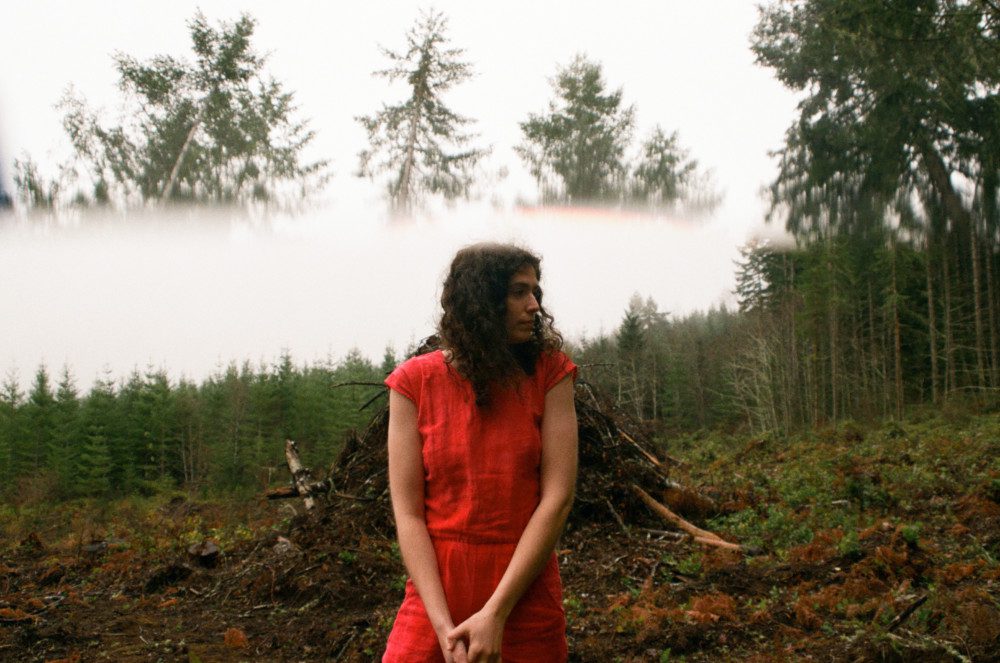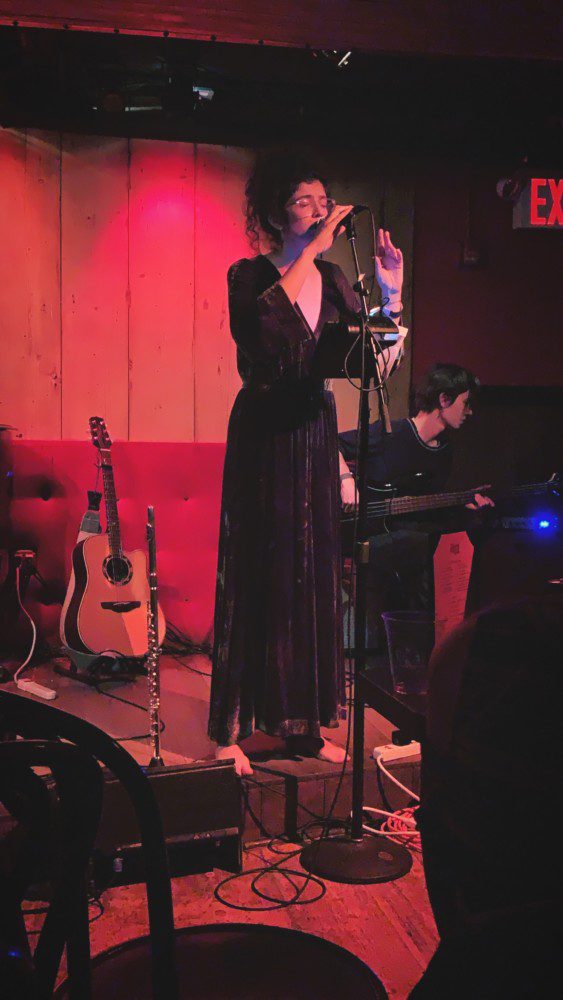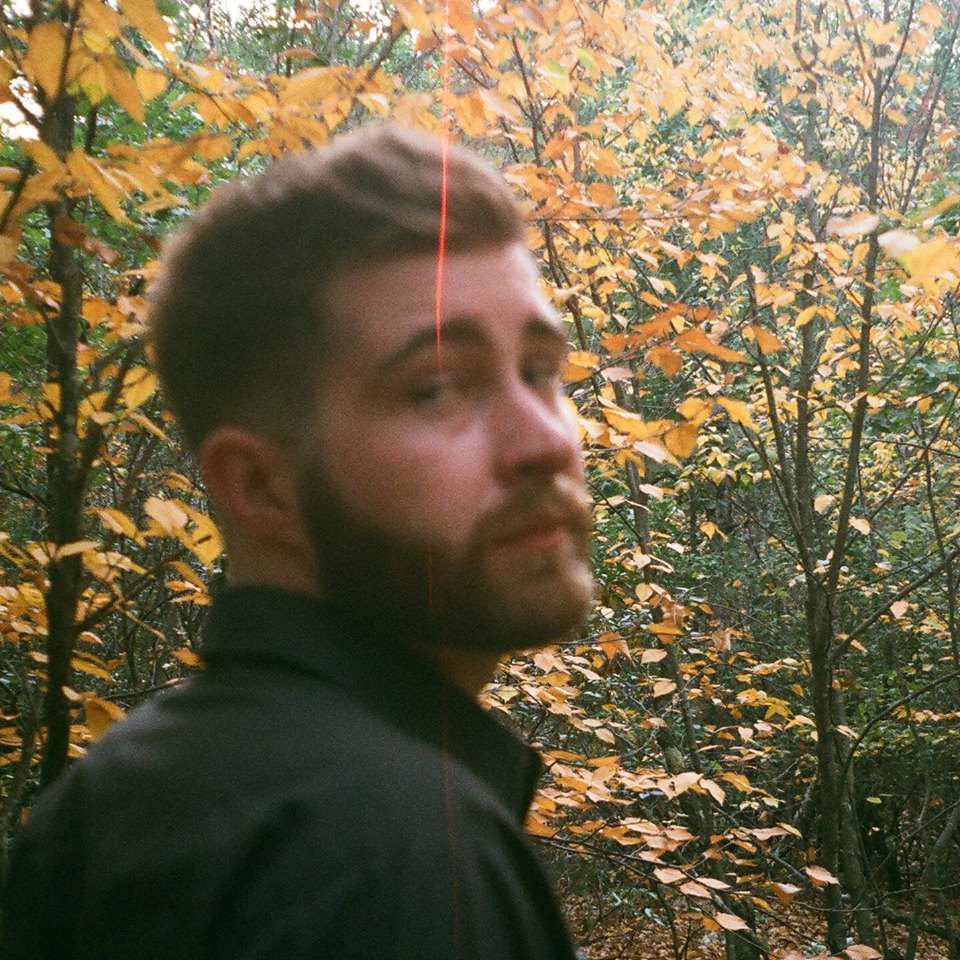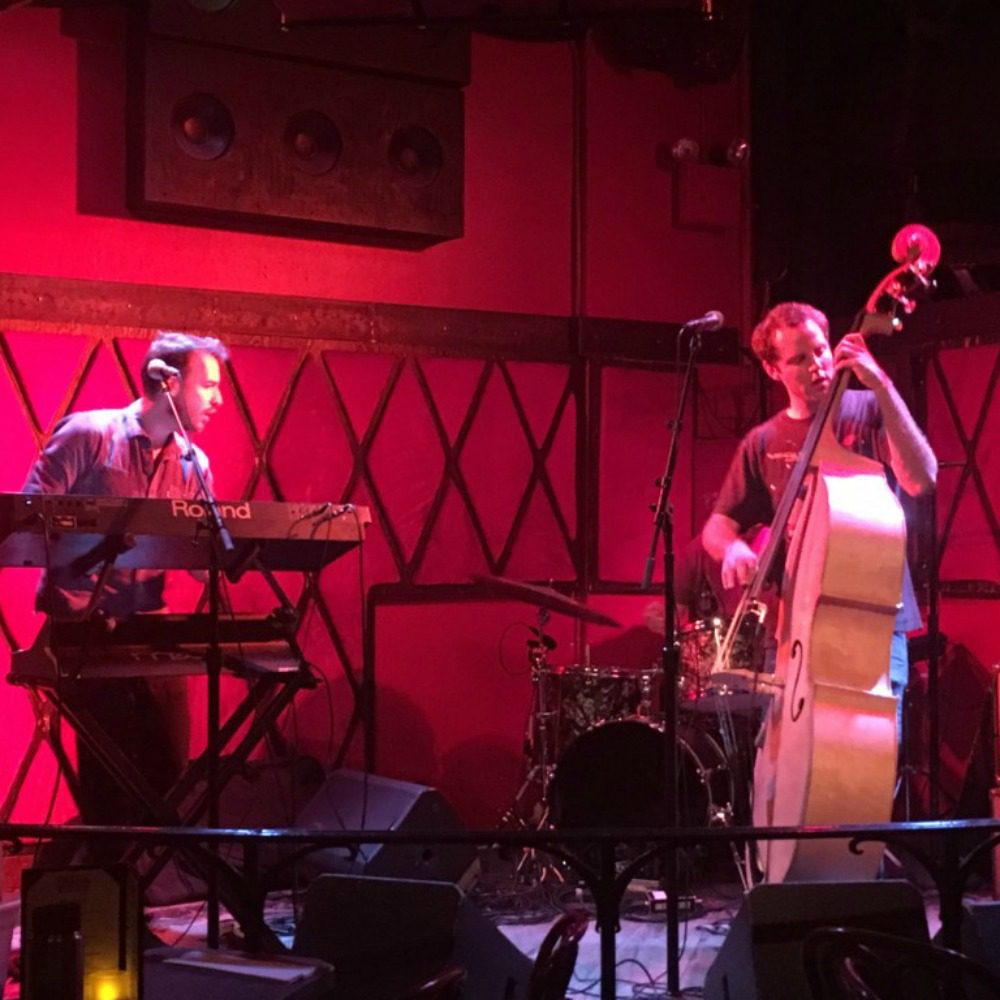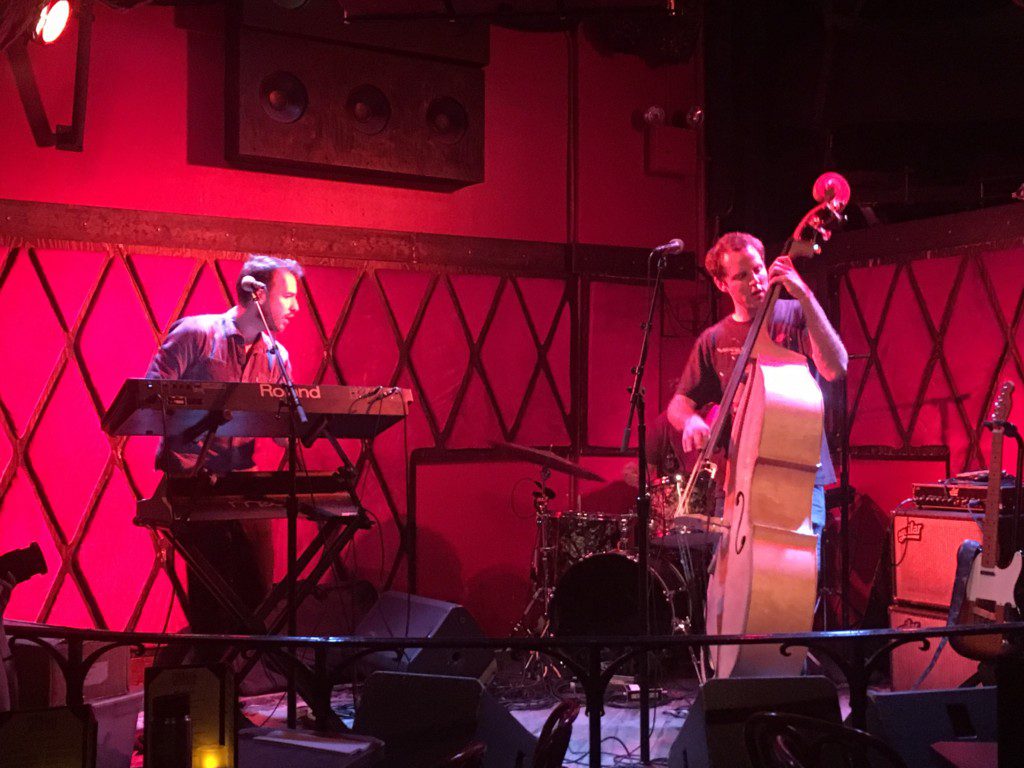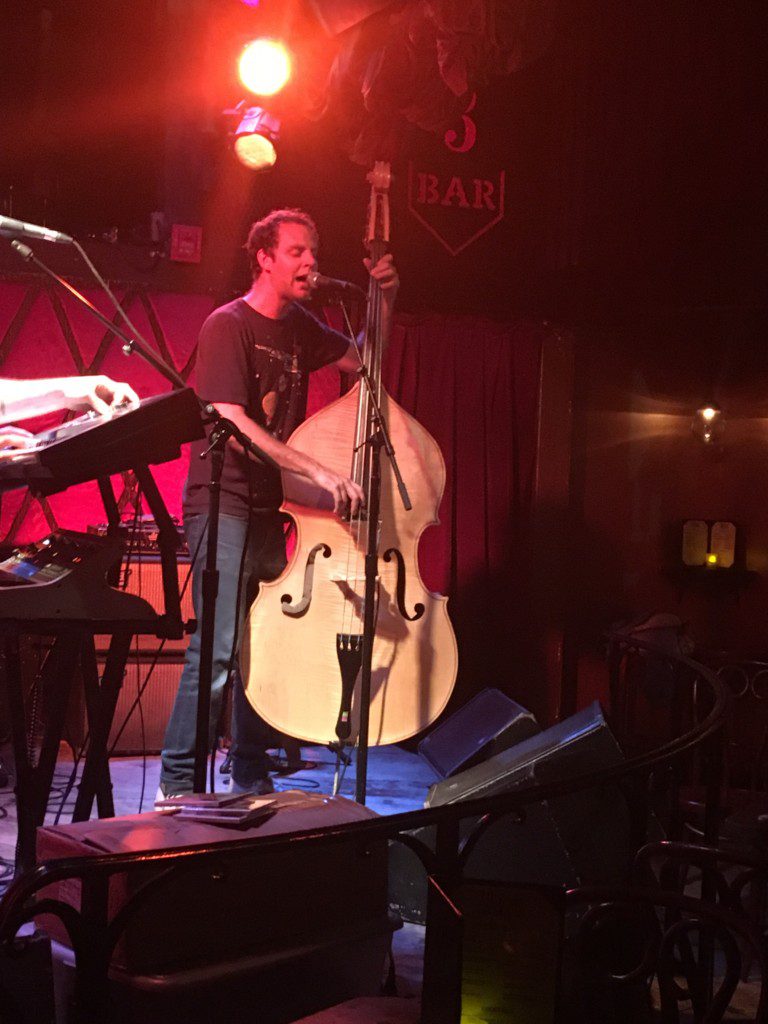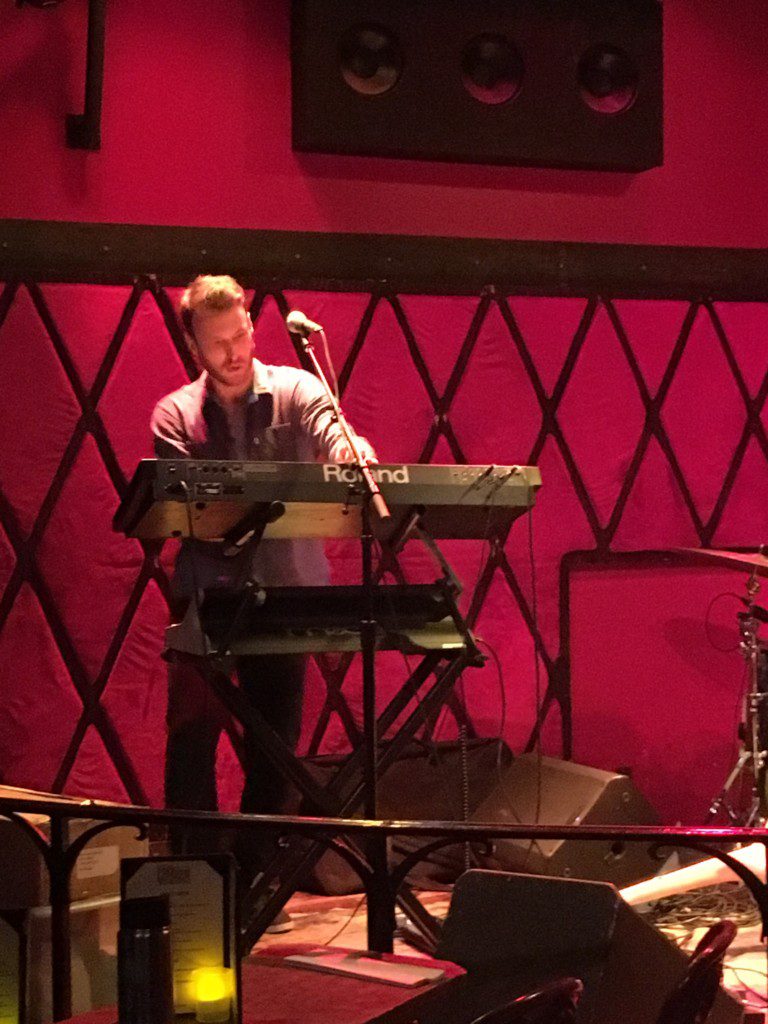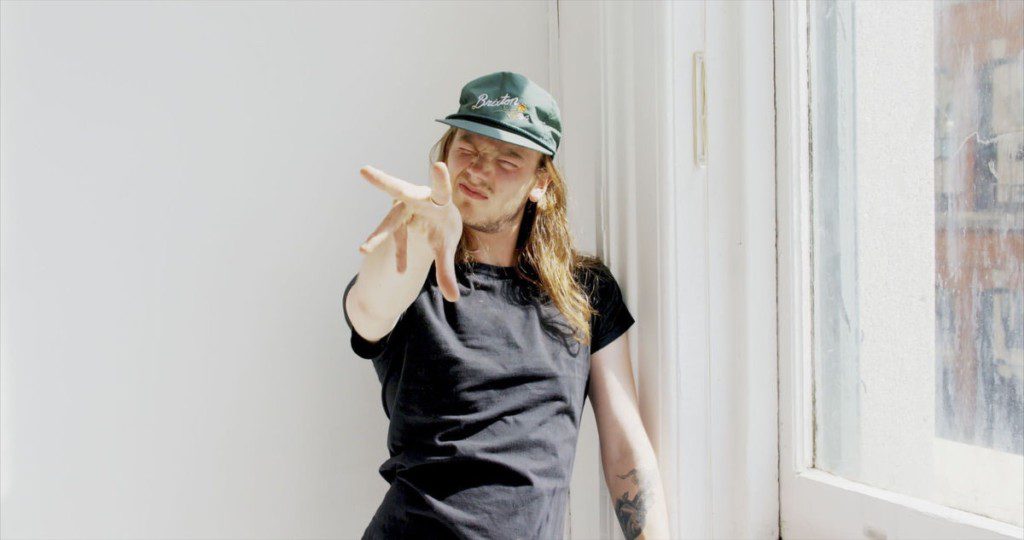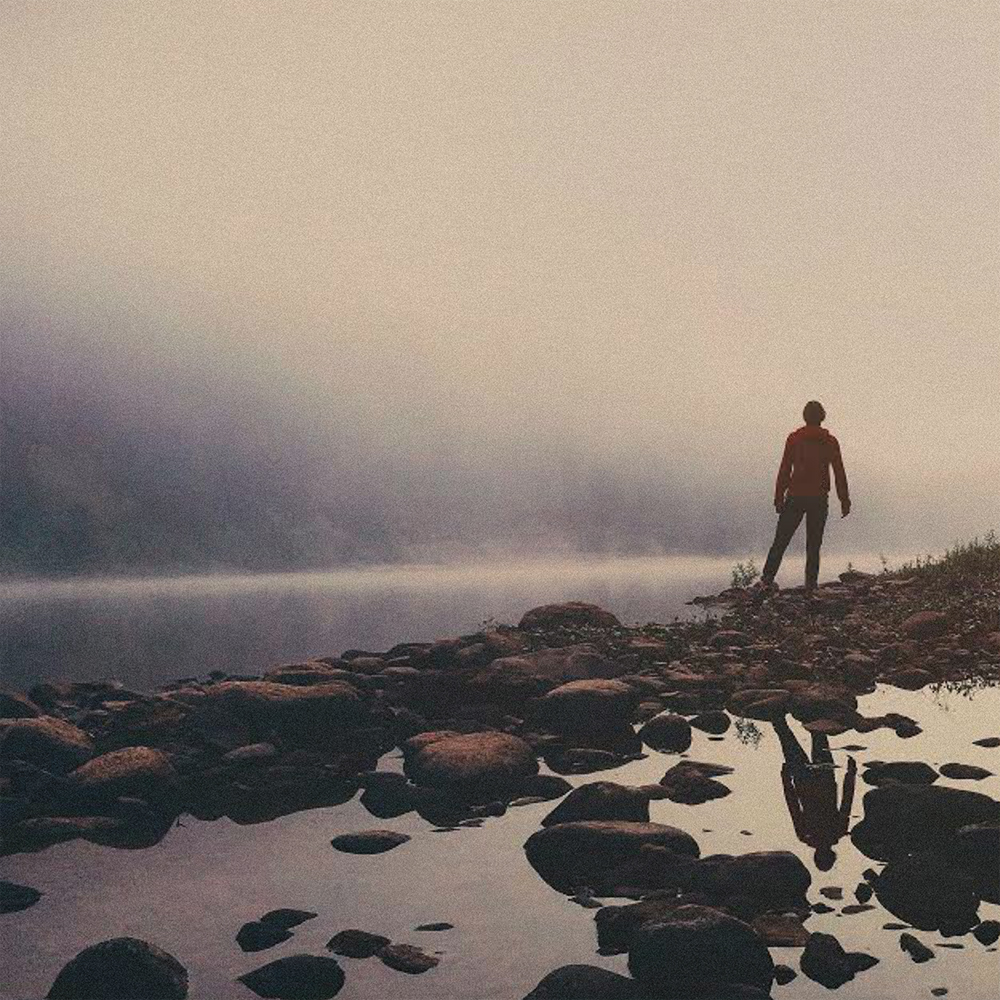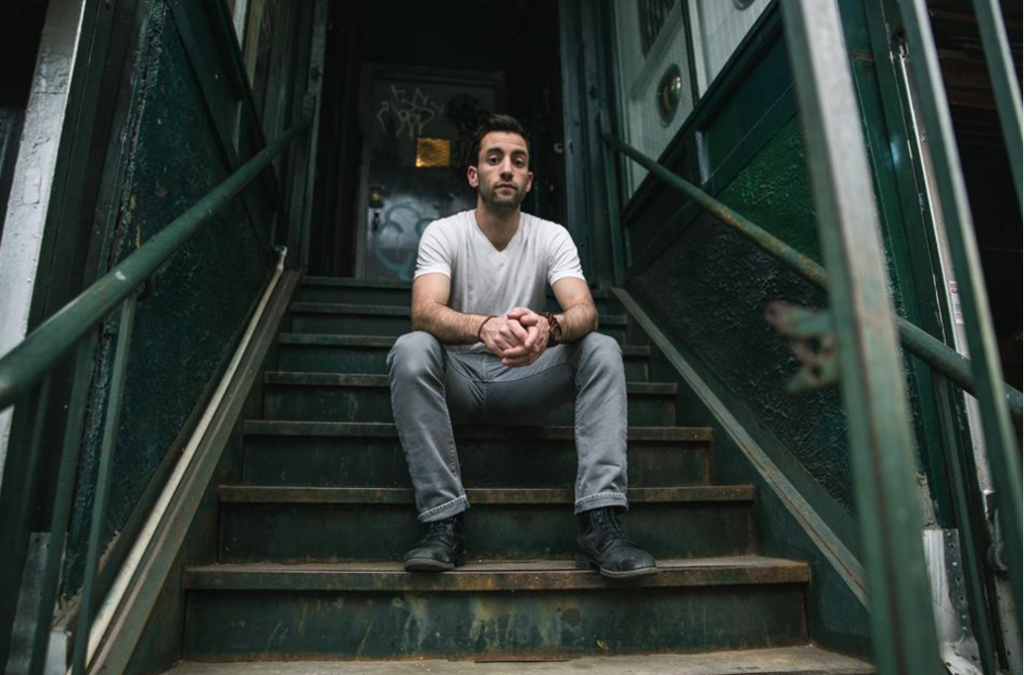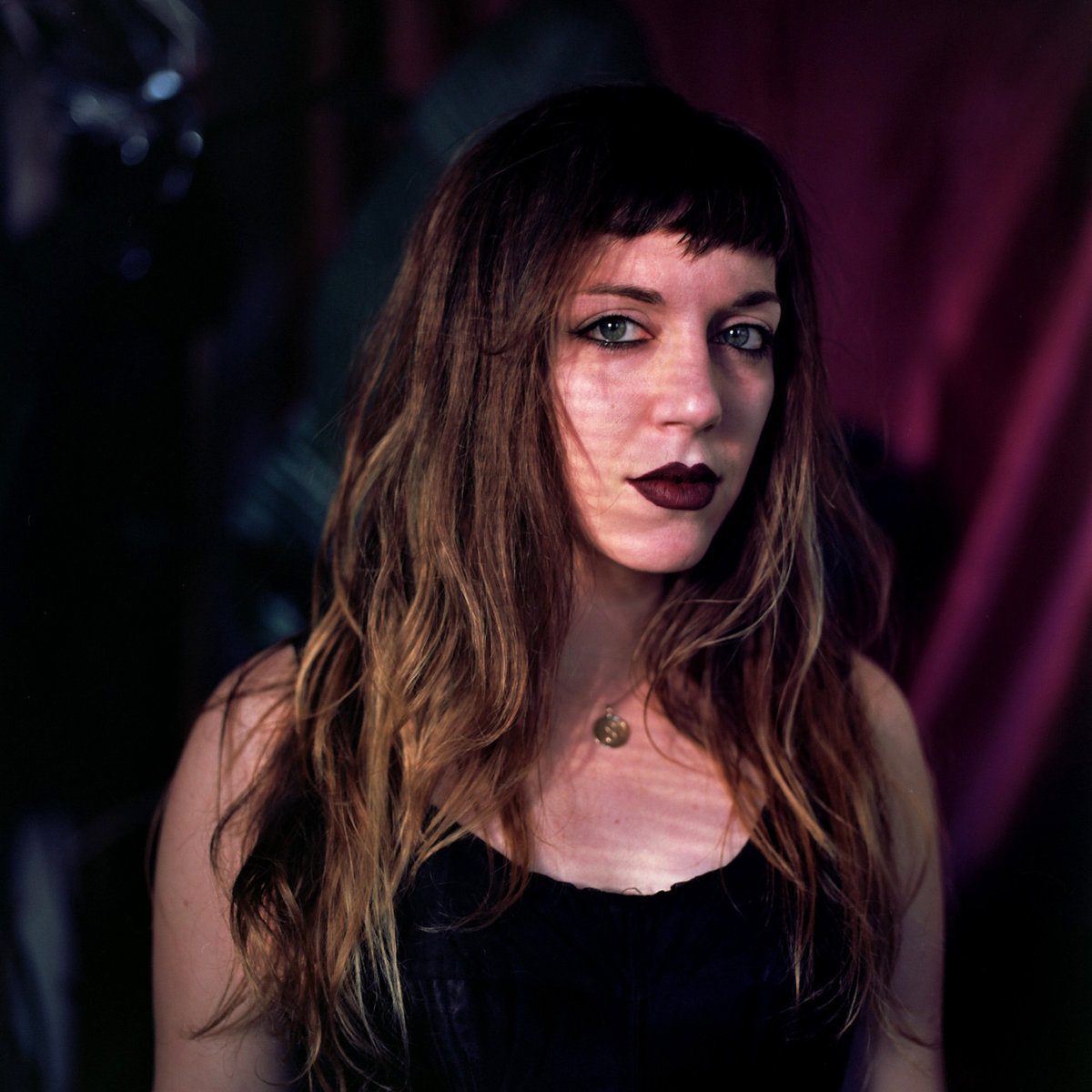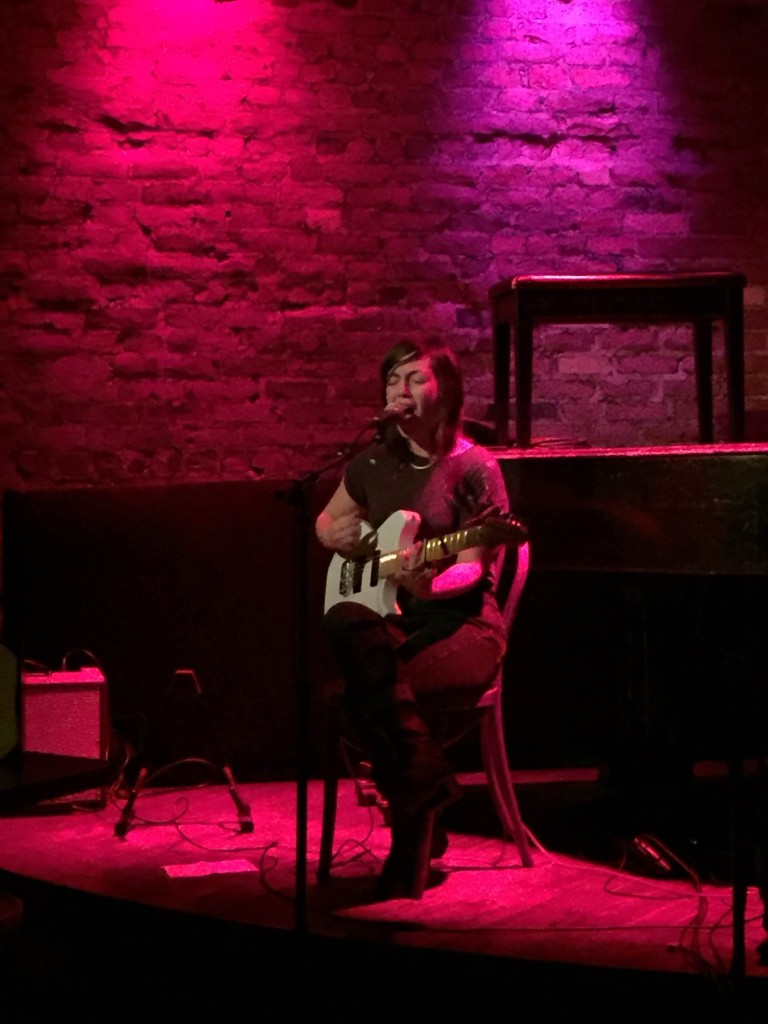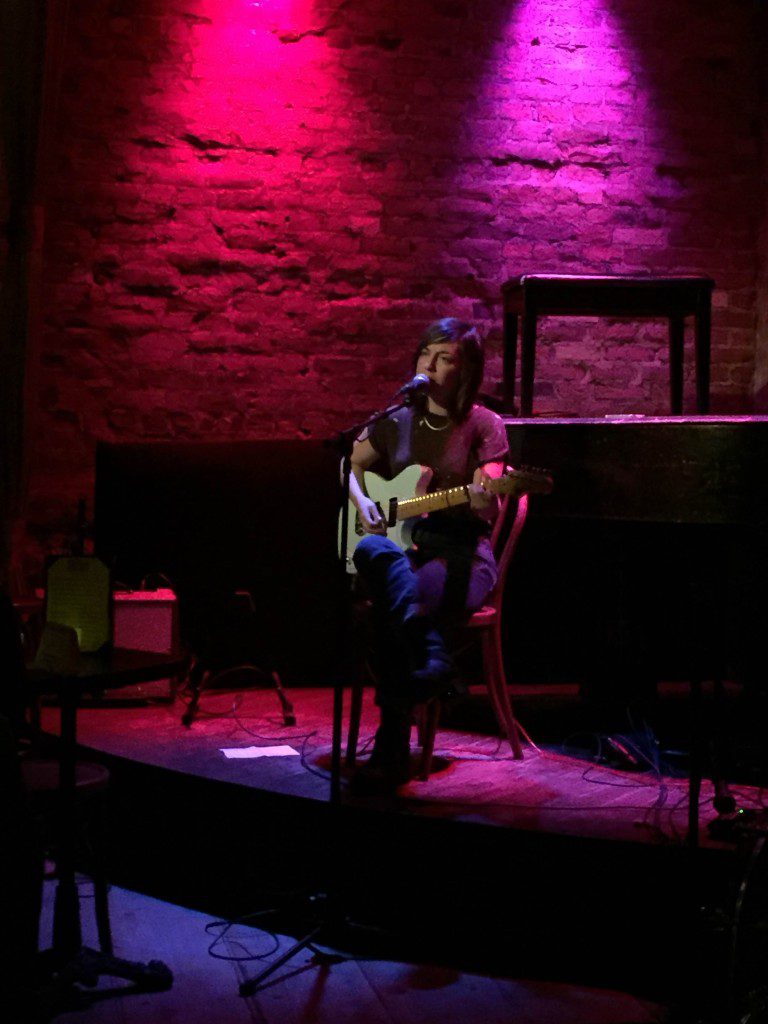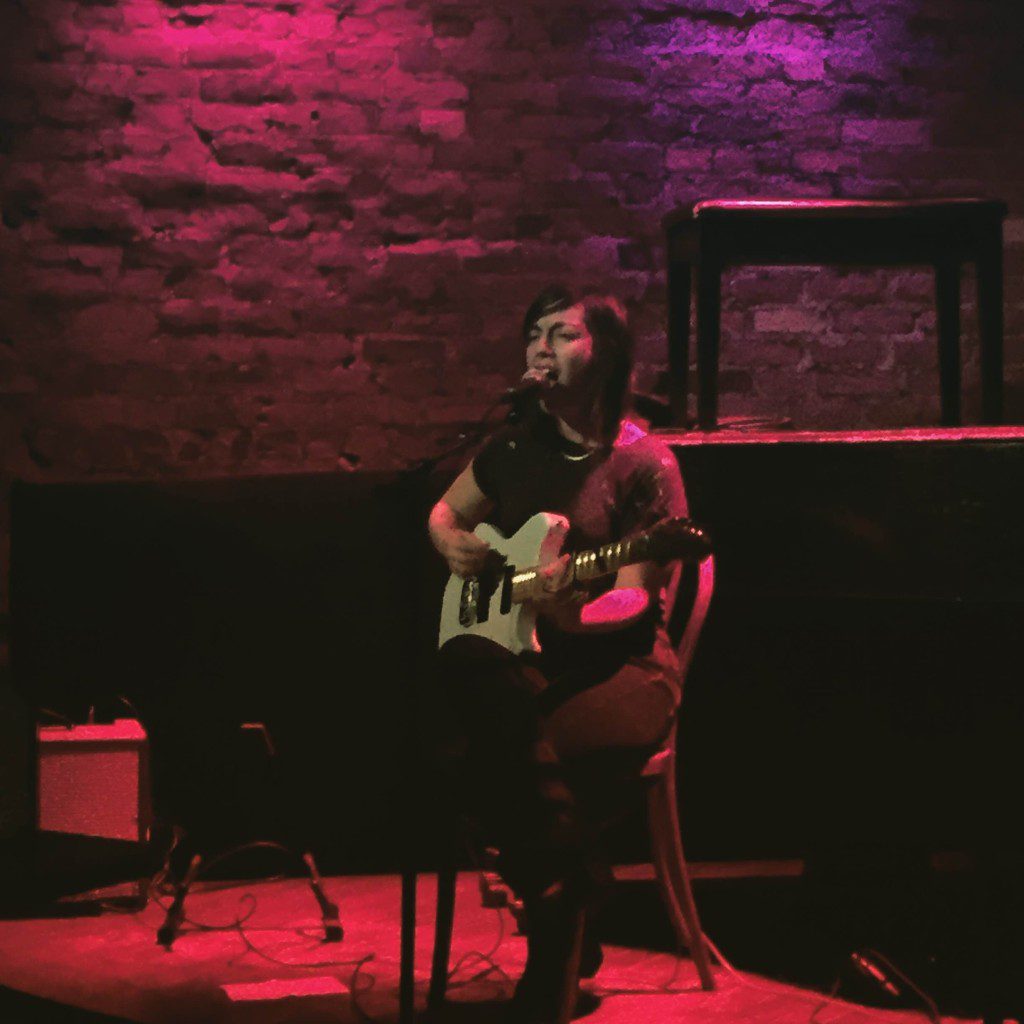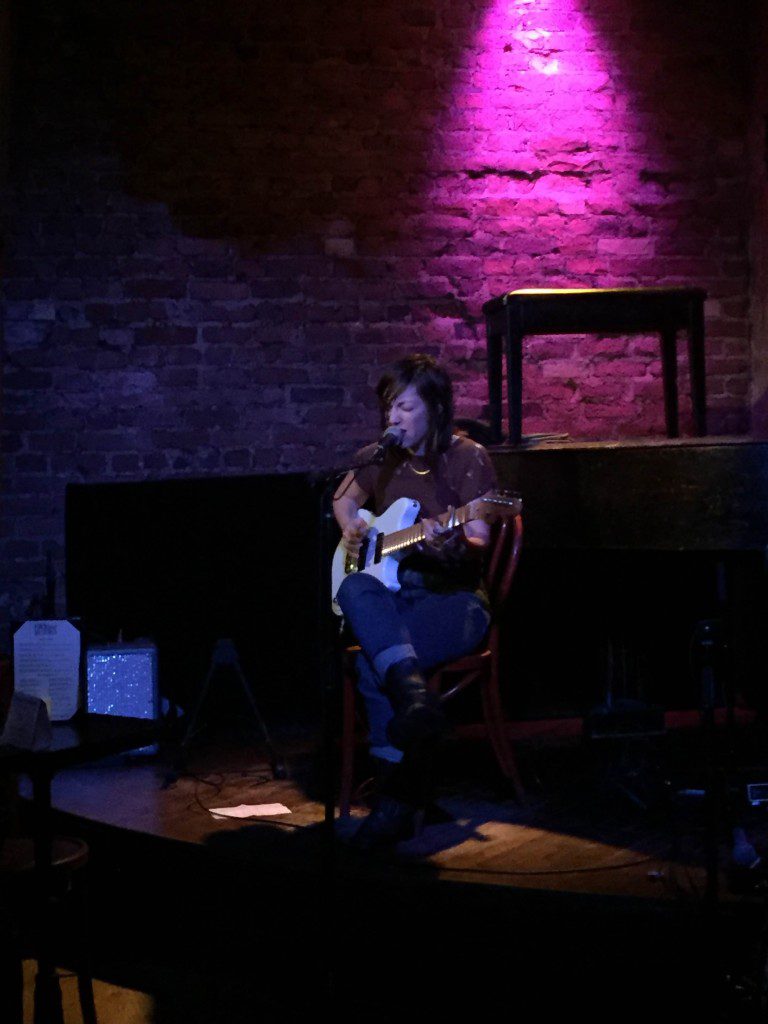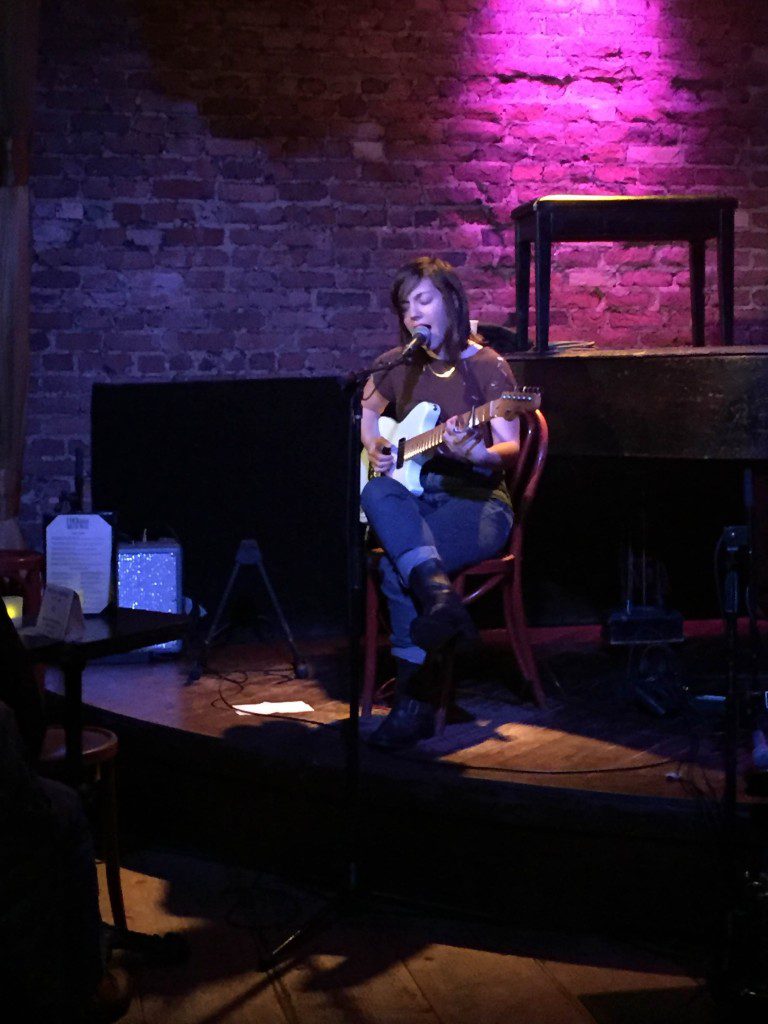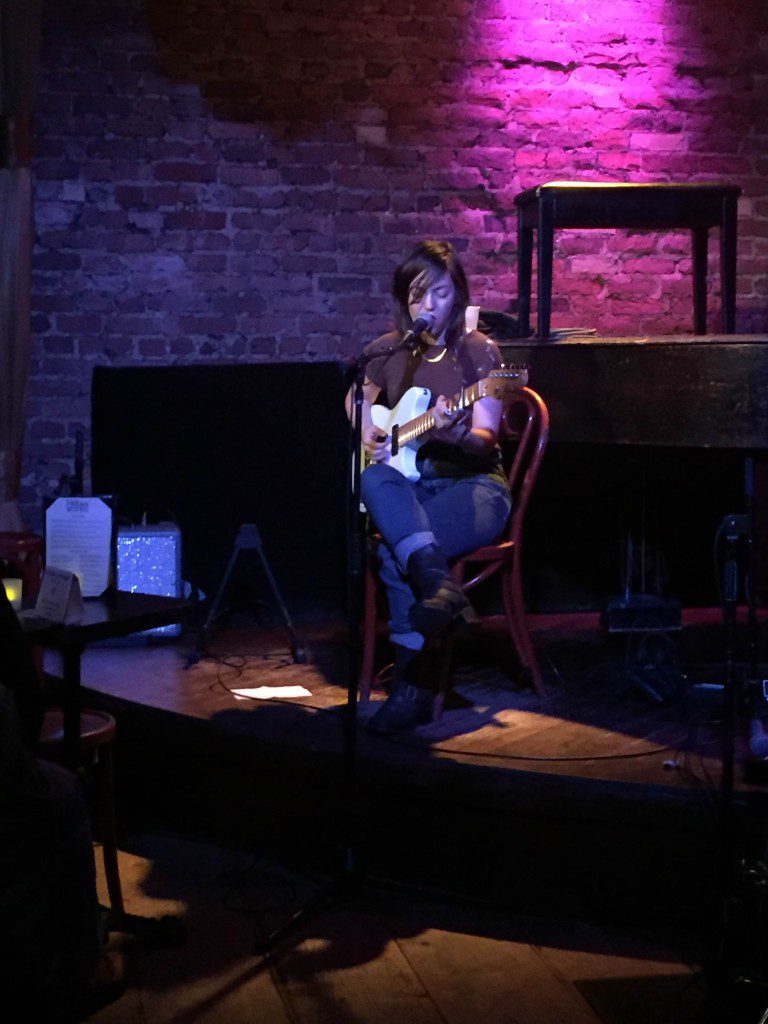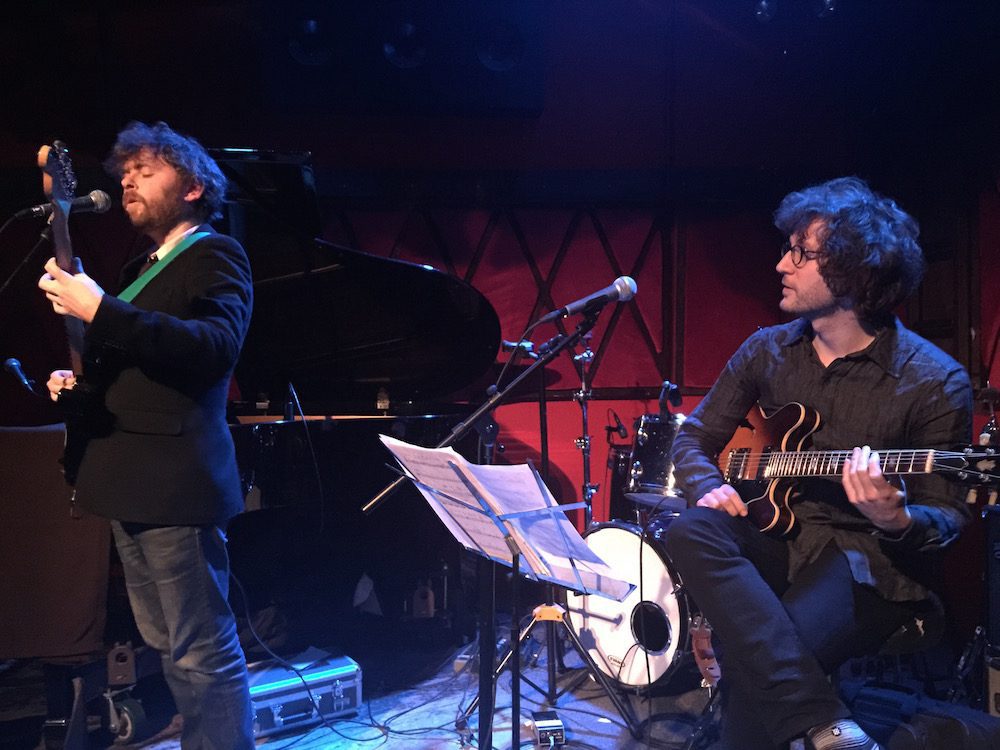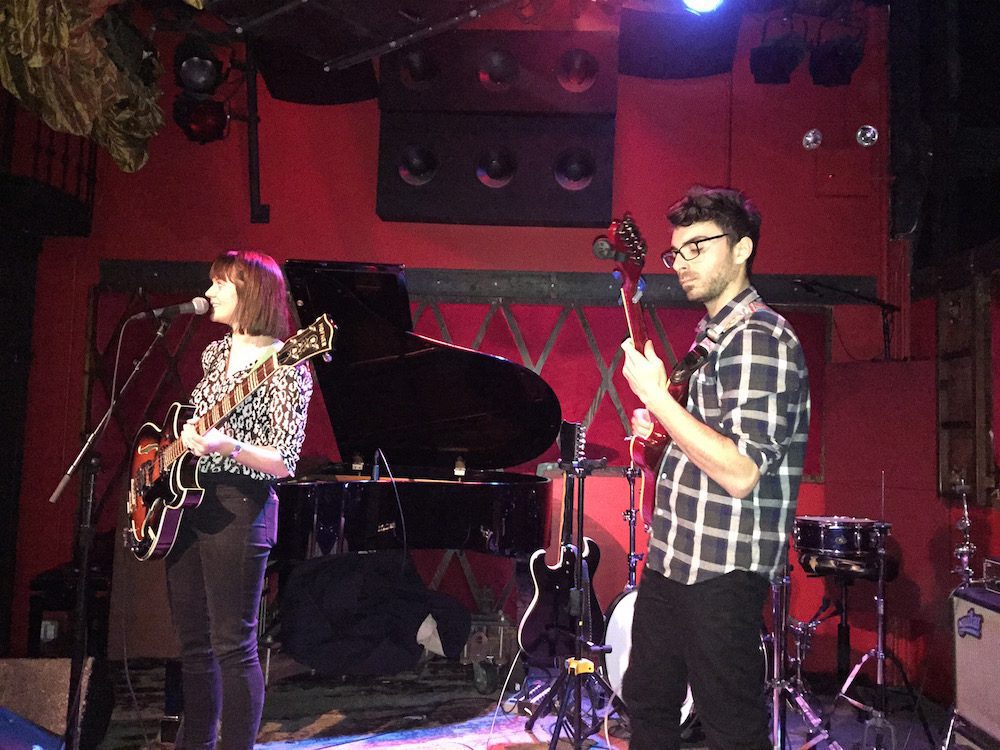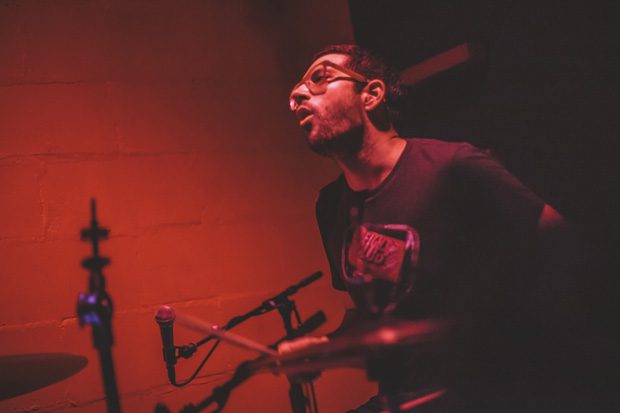

Amy Jay hates being the center of attention. An indie-folk musician based in New York, Jay finds that “everything leading up to the stage” sends jitters throughout her body. It’s only once she’s planted firmly centerstage that those rattling nerves dissipate, and she loses herself in the music. With her new song “Monster,” premiering today via Audiofemme, the singer-songwriter manifests her anxiety in tangible form, a driving tick-tock base mimicking her own mental war.
“Monster,” sampling her forthcoming new LP Awake Sleeper, out February 4, 2022, clocks in at nearly six minutes. Its structure is quite unconventional, containing two very different songs pieced together with a spacey instrumental in between. “I wrote these two ideas, kind of in the same headspace. I can’t remember if it was actually the same day or same week or something, but it was around the same time,” she says. “I love the tuning and the chords. It felt like something when I was playing it, and I experimented with finger picking and strumming.”
Over the coming months, she tried editing and expanding each separate idea but nothing ever worked. “What I had was a couple verses and a chorus. If I tried adding something else to one idea, it just didn’t feel right. I was not in that space anymore,” she shares.
With both ideas in the same tuning, she decided to “smash them together” into a towering, cathartic epic about anxiety. “Practically speaking, I was given a 10-song cap by my producer John [Seal],” Jay says with a laugh. “Then, there’s a beautiful freeform instrumental interlude between the two that I feel glues them perfectly together and ended up being exactly what I intended to say.”
“Keep at bay all the worries/About the impression I’m making,” she sings, the clock striking like lightning through her vocal cords. “In this half-empty attempt at small talk/Due to internal dialogue.”
Pianist Andrew Freeman supplied the interlude, a drifting, mind-melting piano part that assists in quieting the harsh, combustible tick-tock of the first half. “I wasn’t sure if I wanted the clock ticking sound, because it actually did evoke anxiety in me,” she admits. Ultimately, Jay and Seal “ended up going with it” to hammer home the message of suffocating anxiety and its outward ripple effects. “I hope that it helps us face it – and helps me face it – in a way that’s constructive, so we left it in.”
Jay’s artistic career began five years ago with the release of an EP titled Supposed to Be in 2016. Her follow-up, So It Is, arrived two years later. Both projects indicated a knack for stirring together the synthetic with the organic, and her forthcoming Awake Sleeper continues the work with equally creamy, ethereal blends.
“Monster” is, if nothing else, an ambitious musical piece, haunting and torrential. In “trying to capture the emotions in a sonic way,” Jay beckons the listener into a front-row seat to her mental anguish. “That’s where I struggle with my anxiety. I’m very melancholic, naturally, inside my head, so trying to put that into the album, in creative ways, was really fun and interesting,” she explains.
Jay utilized analog synths, heard with resounding effect in the mid-section of “Monster,” and doubled up on vocals to create an immersive soundscape. “I wanted to use repetitive elements of instrumentation to portray a sort of emotional dissonance. I might look calm on the outside, and I might be sleepy, walking on the street and kind of half awake, half asleep in this weird state, but what’s going on inside is a very different experience.”
In the studio, she recorded live drums and bass guitar in the same weekend to “establish that foundation in a traditional way and set the framework to build upon all of these other elements,” she adds. Her vocals were simply the “cherries on top. I remember coming around every weekend during the recording process, having dove deep that weekend prior, with fresh eyes and ears and intensity.”
“Monster” and the previously released “Reliance” serve contrasting purposes for the album. She explains: “Lyrically, ‘Monster’ is capturing an underlying theme for the rest of the album (introspective anxiousness), and subsequently contains the lyrics to the album title. On the other hand, ‘Reliance’ is a manifestation of that theme played out in my relationship, portrayed in a lighthearted way.”
“I am still trapped in my mind like in all the other tracks, but ‘Reliance’ felt like it eased the listener into the idea in a relatable way before things get too overwhelming,” she adds, noting the song as the second track in the lineup. “[It’s] still very much an introduction but coming off the heels of [album opener] ‘Lucid Dreaming,’ helping the metaphorical heart rate go down and relax a bit. And still, it ends with heavy questions: ‘Do I rely too much on you? Take and withhold love from you?'”
Where the first half of the album possesses “a more forward sound overall, where lyrically and production-wise I feel my voice has value and I am wrestling with how to handle that,” the second half settles into a particular tempo, paired against a more visceral sort of lyrical vulnerability. Yet both “Monster” and “Reliance” are connected in their brawny use of “repetitive background melodies to portray the feeling of time. “
As Awake Sleeper will be Jay’s first-ever vinyl release, she chose “Monster” as the second-half fire starter. “Interestingly enough it’s also the second single — I didn’t realize the connection until now. In classical music, there’s the idea of a tonic expansion where you are building and building on top of the base key throughout the piece,” she says, “and this is kind of like that, if you think of the album as one piece. We are in the middle, and we are nowhere near done. What follows is a series of melancholic ballads, a lamenting plot twist, and the final capping off of the album with an unresolved layer of doubt.”
To celebrate the record announcement, Amy Jay will perform her first full band show since pre-pandemic on Stage 3 at the Rockwood Music Hall this coming Tuesday, November 16.
Follow Amy Jay on Instagram for ongoing updates.


